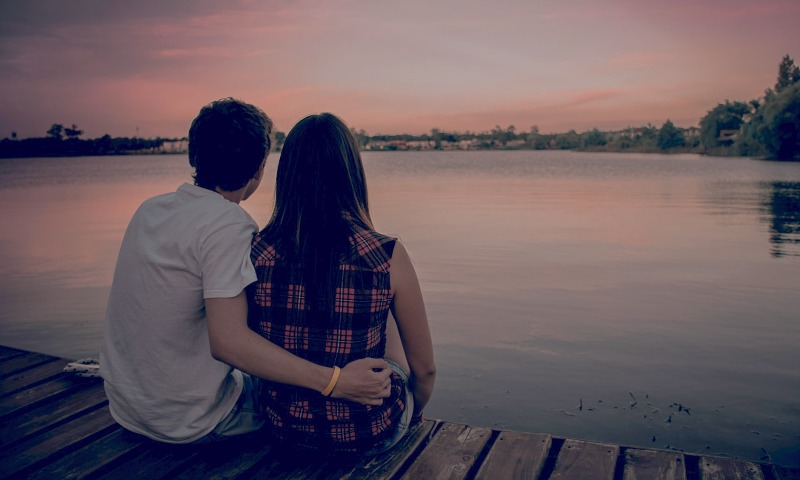
Is it okay to become a parent if you or your partner have mental health challenges or issues? In my long-running “Ask Merle” series, I offer advice with three things to consider:
…
By Merle Bombardieri, MSW, LICSW
…
Q: I suffer from anxiety and depression, and my partner has chronic pain/mild depression. We are worried: is it okay or not for us to have a child?
…
The first is about the child. Will my disorders make me a bad parent? Will I be available enough to baby? Will my partner be overwhelmed trying to help me and the baby? Is it fair to give the child less than perfect parents?
Our other worry is whether we’re taking on too much. My partner has chronic pain and illness, which means he suffers, too, including mild depression.
Even if we’re able to meet our child’s needs, will adding parenting to our already difficult life be a big mistake?
…
Merle’s answer:
…
First of all, I congratulate you both on being proactive, and considering the needs of your potential child as well as your own. It is so easy for people who are craving a baby to ignore these concerns, assuming “It will all work out somehow,” or for these concerns to not even occur to them until they’re holding a screaming newborn that they would have been better off not having.
Just by anticipating potential problems, you have done 60 percent of the work needed to answer the questions and to raise your child if you decide to have one.
Also, no child gets a perfect parent or set of parents. Other children may endure parents who are emotionally or physically abusive, or neglectful or addictive, or lacking in affection, empathy and compassion. All things considered, you will probably be “a good enough parent,” a concept developed the psychoanalyst DW Winicott.
…
Think about these 3 mental health considerations:
…
1. What is the history of your experience and coping with your problems?
For example, have you found psychotherapy, medication, meditation, exercise, and/or relaxation to reduce the frequency or intensity of your times of suffering? Can you think of a problem you recently solved despite your emotions and symptoms that you would not have been able to solve in the past?
Also, have you experienced a better life due to the techniques above, or other types of resilience? If so, try to imagine using these same techniques to cope with parenting stresses.
The mental health professionals you are working with now or in the past are in a great position to help you answer these questions. They have seen you at your best and your worst, and seen you master situations that would have toppled you in the past. They’ve also worked with others deciding whether or not to have a child. Based on these professional experiences and possibly their own parenting experience, they may be able to help you predict what parenthood would be like for you.
Your partner, family and friends whom you consider trustworthy, and who are not trying to talk you into parenthood, may have useful input as well. They may be able to remind you of tough situations you managed well despite your vulnerabilities. They may have observed you in healthy, joyful interactions with their children.
2. Could your current medications hurt your fetus?
If you are considering pregnancy and you take medications for anxiety and depression, you may need to stop taking them or substitute others that are deemed to be safer. Consulting with your Ob-GYN, own psychiatrist/pharmacologist or a psychiatrist who specializes in perinatal pharmacology can help you evaluate the options. These specialists may point out that daily anxiety and depression might be more detrimental to your fetus than your current medications or alternative prescriptions!
3. You don’t have to be a parent to enjoy being with children.
Just because you decide you are capable of good parenting doesn’t mean you have to go forward. Some people I work with feel that although they could be good parents and get some pleasure from parenthood, they conclude that the emotional energy they would need to cope with pregnancy and parenting would be too much. They don’t want to white-knuckle their way through an experience they hoped to enjoy.
If you think that applies to you, then you might decide to remain childfree. You may choose to spend time with nieces and nephews or friends’ children or do volunteer work. That way, you can enjoy nurturing without the intense, decades-long challenge of parenthood.
You’re already off to a good start by simply taking the time to consider your options. While you may believe that you have a lot to consider on whether to become a parent despite your mental health challenges, if you break down the important factors, such as what I’ve listed above, you may find more clarity than you expected.
…
Readers, what’s been your experience so far?
…
Does something I’ve said above ring true for you or help move you along in your decision-journey? Have you thought of something else that helped you navigate concerns around mental health and parenting? Either way, please reach out and let me know. I’d love to hear from you.
What other questions can I help you address? How can I help you make the right choice for you? Reach out to me via my online contact form, or in our private Facebook group The Decision Café, or on any of my social media pages: Facebook, Instagram, or Twitter/X.
…
Want to learn more?
…
I will be writing more about mental health and other timely baby decision considerations in my new book, expected in 2025. You can preview some of these topics and techniques if you subscribe to my free, quarterly email newsletter. In each issue, I’ll share a sneak peek excerpt that only newsletter readers can see! So if you haven’t yet, be sure to subscribe now here or in the signup box below.
After you’ve done that, I invite you to catch up on my previous baby decision blog posts here.
– Merle
Photo on this page by Jose Chomali on Unsplash.com

